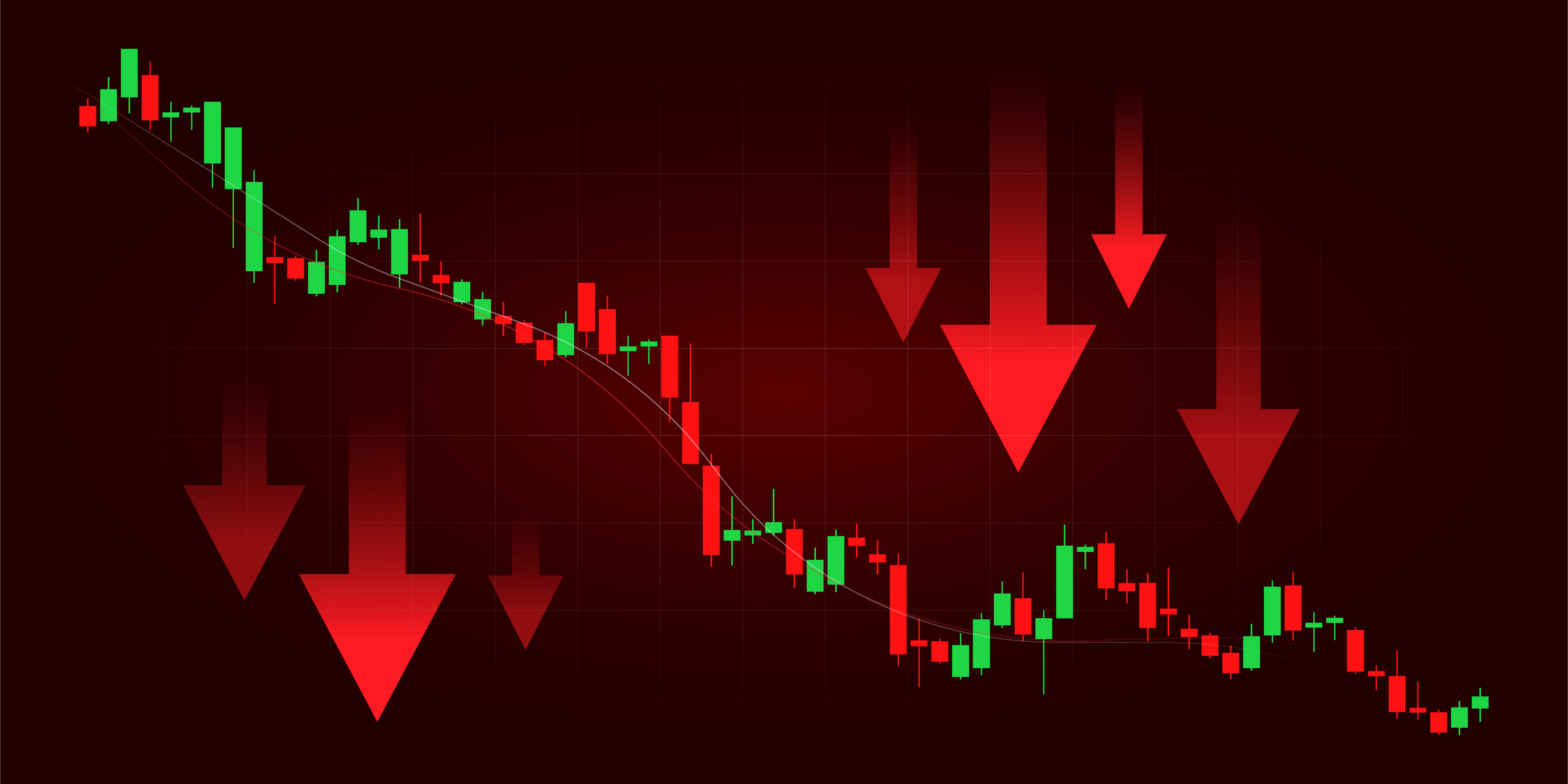The Income Rally Roars On
Gripes about market risks now seem feeble. And sometimes the best moves are the ones you don’t make.

Profit and prosper with the best of Kiplinger's advice on investing, taxes, retirement, personal finance and much more. Delivered daily. Enter your email in the box and click Sign Me Up.
You are now subscribed
Your newsletter sign-up was successful
Want to add more newsletters?

Delivered daily
Kiplinger Today
Profit and prosper with the best of Kiplinger's advice on investing, taxes, retirement, personal finance and much more delivered daily. Smart money moves start here.

Sent five days a week
Kiplinger A Step Ahead
Get practical help to make better financial decisions in your everyday life, from spending to savings on top deals.

Delivered daily
Kiplinger Closing Bell
Get today's biggest financial and investing headlines delivered to your inbox every day the U.S. stock market is open.

Sent twice a week
Kiplinger Adviser Intel
Financial pros across the country share best practices and fresh tactics to preserve and grow your wealth.

Delivered weekly
Kiplinger Tax Tips
Trim your federal and state tax bills with practical tax-planning and tax-cutting strategies.

Sent twice a week
Kiplinger Retirement Tips
Your twice-a-week guide to planning and enjoying a financially secure and richly rewarding retirement

Sent bimonthly.
Kiplinger Adviser Angle
Insights for advisers, wealth managers and other financial professionals.

Sent twice a week
Kiplinger Investing Weekly
Your twice-a-week roundup of promising stocks, funds, companies and industries you should consider, ones you should avoid, and why.

Sent weekly for six weeks
Kiplinger Invest for Retirement
Your step-by-step six-part series on how to invest for retirement, from devising a successful strategy to exactly which investments to choose.
No sooner do I warn investors that stock and bond prices are too high and point to spreading irrational overexuberance (see Beware the Roaring Twenties) than all my favorite income investment categories go even more wild to the upside. Serves me right for questioning this market. I’m not abandoning all caution. I still believe that AT&T (symbol T) shares are expensive and that closed-end funds with nutty premiums to net asset value will fall toward earth. But sometimes the best moves are the ones you don’t make and the right course is to take what the market is giving you, no questions asked.
In January, Standard & Poor’s broad municipal bond index returned 1.64%, the index’s biggest one-month gain since 2014. Strategists at T. Rowe Price just officially declared utilities a growth sector—no longer dull bond alternatives—and predicted that utility earnings will exceed those of the S&P 500 index for the next few years. Triple-B-rated corporate bonds, which a year ago marinated in fear and loathing, have gained close to 2.6% so far this year and 15% over the past 12 months. (Returns and other data are as of January 31.)
Gripes about market risks now seem feeble. The coronavirus? In the sometimes-perverse way of the bond market, this human tragedy and economic hurdle is a giant gift to bond investors, causing even faster rivers of money to seek haven in U.S. dollars and government debt, driving down interest rates. This development has brought back the not-so-dreaded “inverted yield curve,” which occurs when short-term yields are higher than long-term ones. It’s ostensibly a harbinger of recession, and typically prompts warnings of bond-price losses and defaults. The reality: Unless the inversion is a result of the Federal Reserve pumping short-term rates skyward, it’s trivial.
From just $107.88 $24.99 for Kiplinger Personal Finance
Become a smarter, better informed investor. Subscribe from just $107.88 $24.99, plus get up to 4 Special Issues

Sign up for Kiplinger’s Free Newsletters
Profit and prosper with the best of expert advice on investing, taxes, retirement, personal finance and more - straight to your e-mail.
Profit and prosper with the best of expert advice - straight to your e-mail.
Ignore the political polls. A few scattered pundits are spreading nonsense that the better Bernie Sanders looks in polls and primaries, the likelier the markets’ accumulated gains are to atomize. We saw similar warnings of massive inflation and tax increases concomitant with the 2008 surge of Barack Obama to his party’s nomination, as well as four years later at his re-election. Quite a few market sages also greeted Donald Trump’s election as likely to be troublesome for investors because the markets hate surprises, and Trump was a surprise. Whatever your political leanings, I remind you that the Fed’s actions, companies’ earnings and dividends, and price stability matter mega-times more than politics.
As for the troubles at Boeing and the sinking price of oil and natural gas, well, what happens at Boeing (BA and Exxon stays at Boeing and Exxon. There’s no risk of contagion to the broader markets. (For more on ExxonMobil, see The Kiplinger Dividend 15 Update.) If you’re tempted by the juicy yields, I’d say first check out taxable municipal bonds (see Taxable Munis? They’re Worth a Look) and out-of-favor real estate investment trusts, such as those investing in hotels, senior housing and health care facilities.
Investment managers and advisers who meet with rank-and-file investors are more grounded than the pundits. I surveyed members of the fee-only financial planners’ organization NAPFA as to whether it is becoming urgent for retirees to “take a knee,” or purge all portfolio risk. Very few said it’s time for a run on CDs, money market funds or online savings accounts.
The folks at Columbia Threadneedle Investments publish a monthly markets barometer. Tellingly, they fall in the neutral zone—neither bullish nor bearish—on key investment categories such as U.S. large-company stocks, small caps, growth stocks and value-oriented fare. Ditto for Treasury, investment-grade, municipal and junk bonds, as well as REITs and more. The clear, unambiguous conclusion: Hang in there.
Profit and prosper with the best of Kiplinger's advice on investing, taxes, retirement, personal finance and much more. Delivered daily. Enter your email in the box and click Sign Me Up.

Kosnett is the editor of Kiplinger Investing for Income and writes the "Cash in Hand" column for Kiplinger Personal Finance. He is an income-investing expert who covers bonds, real estate investment trusts, oil and gas income deals, dividend stocks and anything else that pays interest and dividends. He joined Kiplinger in 1981 after six years in newspapers, including the Baltimore Sun. He is a 1976 journalism graduate from the Medill School at Northwestern University and completed an executive program at the Carnegie-Mellon University business school in 1978.
-
 How Much It Costs to Host a Super Bowl Party in 2026
How Much It Costs to Host a Super Bowl Party in 2026Hosting a Super Bowl party in 2026 could cost you. Here's a breakdown of food, drink and entertainment costs — plus ways to save.
-
 3 Reasons to Use a 5-Year CD As You Approach Retirement
3 Reasons to Use a 5-Year CD As You Approach RetirementA five-year CD can help you reach other milestones as you approach retirement.
-
 Your Adult Kids Are Doing Fine. Is It Time To Spend Some of Their Inheritance?
Your Adult Kids Are Doing Fine. Is It Time To Spend Some of Their Inheritance?If your kids are successful, do they need an inheritance? Ask yourself these four questions before passing down another dollar.
-
 Stocks Struggle for Gains to Start 2026: Stock Market Today
Stocks Struggle for Gains to Start 2026: Stock Market TodayIt's not quite the end of the world as we know it, but Warren Buffett is no longer the CEO of Berkshire Hathaway.
-
 AI Stocks Lead Nasdaq's 398-Point Nosedive: Stock Market Today
AI Stocks Lead Nasdaq's 398-Point Nosedive: Stock Market TodayThe major stock market indexes do not yet reflect the bullish tendencies of sector rotation and broadening participation.
-
 Stocks Bounce Back With Tech-Led Gains: Stock Market Today
Stocks Bounce Back With Tech-Led Gains: Stock Market TodayEarnings and guidance from tech stocks and an old-school industrial lifted all three main U.S. equity indexes back into positive territory.
-
 Dow Adds 300 Points, Ends Losing Streak: Stock Market Today
Dow Adds 300 Points, Ends Losing Streak: Stock Market TodayThe Dow, the S&P 500 and the Nasdaq head into the weekend on high notes after posting gains for the first time since Monday.
-
 The Most Tax-Friendly States for Investing in 2025 (Hint: There Are Two)
The Most Tax-Friendly States for Investing in 2025 (Hint: There Are Two)State Taxes Living in one of these places could lower your 2025 investment taxes — especially if you invest in real estate.
-
 The Final Countdown for Retirees with Investment Income
The Final Countdown for Retirees with Investment IncomeRetirement Tax Don’t assume Social Security withholding is enough. Some retirement income may require a quarterly estimated tax payment by the September 15 deadline.
-
 President Trump Makes Markets Move Again: Stock Market Today
President Trump Makes Markets Move Again: Stock Market TodayThe White House is moving ahead with plans to reshape the Federal Reserve and to buy shares in more sectors and stocks.
-
 Stocks Are Up and Down on Fed Day: Stock Market Today
Stocks Are Up and Down on Fed Day: Stock Market TodayIn another sign of changing times, JPMorgan has partnered with Coinbase to enable cryptocurrency purchases with credit cards.